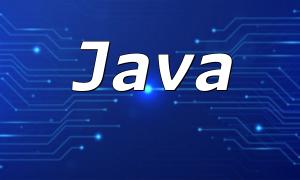PHP7.4 is a major version of the PHP language, released on November 28, 2019. Compared to PHP7.3, PHP7.4 offers new features, performance improvements, and bug fixes, as well as security patches.
When upgrading to PHP7.4, you may encounter compatibility issues. These issues are often caused by new features and changes introduced in PHP7.4. Below are some common compatibility problems:
Some functions may be removed or have their parameter types changed in PHP7.4, causing legacy code to break. For example:
<span class="fun">function foo(int $bar) { // ... } foo('bar'); // PHP Warning: strpos() expects parameter 1 to be string, int given</span>The solution is to update the function's parameter type declaration. For example, use a union type to allow multiple parameter types:
<span class="fun">function foo(string|int $bar) { // ... } foo('bar'); // OK foo(42); // OK</span>In PHP7.4, some magic constants (like __LINE__, __CLASS__, and __FILE__) may become invalid due to the new registry implementation. For example:
<span class="fun">echo __FILE__; // Before PHP7.4: /path/to/file.php // After PHP7.4: UNKNOWN</span>
The solution is to use __DIR__ or dirname(__FILE__) instead of __FILE__.
In PHP7.4, if a namespace shares the same name as a class, it may cause a namespace resolution issue. For example:
<span class="fun">namespace foo; class bar { // ... } function bar() { // ... }</span>In PHP7.4, you don't need to use a backslash (\) when calling the function bar(). However, in PHP5.x, a backslash is required.
In PHP7.4, if a URL is passed as a string to related functions, the port number may be parsed as NULL. For example:
<span class="fun">$url = 'https://www.example.com:80/'; $parts1 = parse_url($url); print_r($parts1); // Before PHP7.4: Array ( [scheme] => https [host] => www.example.com [port] => 80 [path] => / ) // After PHP7.4: Array ( [scheme] => https [host] => www.example.com [port] => NULL [path] => / )</span>
The solution is to either convert the port number to an integer or enclose it in square brackets.
Here are some effective solutions to help developers fix compatibility issues during the PHP7.4 upgrade:
Before upgrading to PHP7.4, it is recommended to perform thorough code review and testing to ensure the code will work correctly with the new version. You can use unit tests, integration tests, and performance tests to detect potential issues.
For incompatible code, update it to use the new features in PHP7.4. For example, use PHP7.4's union types to replace functions that don't support multiple types of parameters.
<span class="fun">function foo(string|int $bar) { // ... } foo('bar'); // OK foo(42); // OK</span>In addition to updating your code, you can also use compatibility libraries to help fix issues that arise during the upgrade. For example, you can use PHP-CS-Fixer to automatically fix code style and formatting issues.
When upgrading to PHP7.4, you may encounter compatibility issues due to new features and changes in the version. By performing code reviews, testing, updating your code, or using compatibility libraries, you can resolve these issues and ensure smooth operation in the new version.









